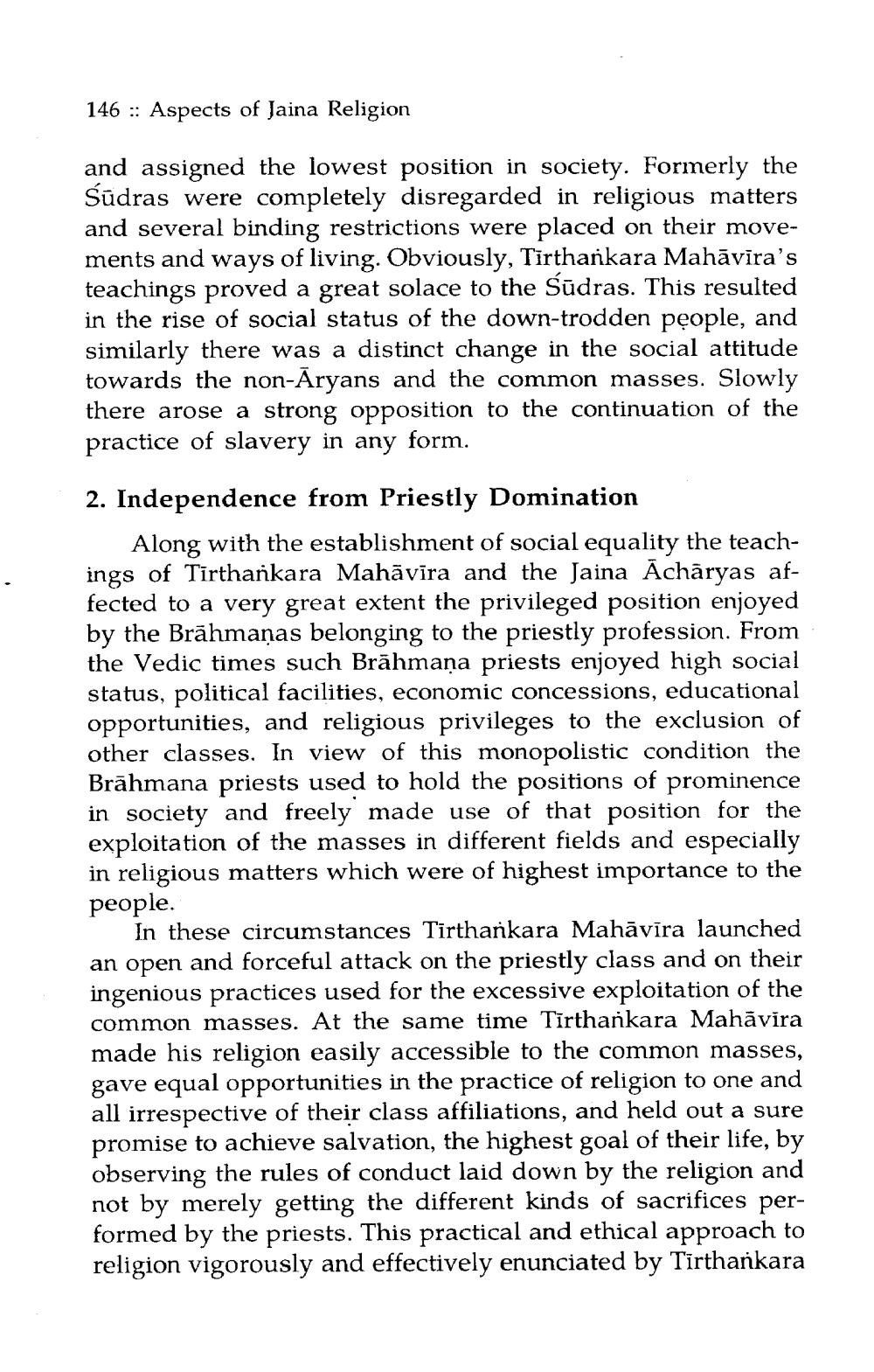________________
146 :: Aspects of Jaina Religion
and assigned the lowest position in society. Formerly the Sūdras were completely disregarded in religious matters and several binding restrictions were placed on their movements and ways of living. Obviously, Tirthankara Mahāvīra's teachings proved a great solace to the Sūdras. This resulted in the rise of social status of the down-trodden people, and similarly there was a distinct change in the social attitude towards the non-Aryans and the common masses. Slowly there arose a strong opposition to the continuation of the practice of slavery in any form.
2. Independence from Priestly Domination
Along with the establishment of social equality the teachings of Tīrthankara Mahāvīra and the Jaina Achāryas affected to a very great extent the privileged position enjoyed by the Brāhmaṇas belonging to the priestly profession. From the Vedic times such Brāhmaṇa priests enjoyed high social status, political facilities, economic concessions, educational opportunities, and religious privileges to the exclusion of other classes. In view of this monopolistic condition the Brāhmana priests used to hold the positions of prominence in society and freely made use of that position for the exploitation of the masses in different fields and especially in religious matters which were of highest importance to the people.
In these circumstances Tīrthankara Mahāvīra launched an open and forceful attack on the priestly class and on their ingenious practices used for the excessive exploitation of the common masses. At the same time Tīrthankara Mahāvira made his religion easily accessible to the common masses, gave equal opportunities in the practice of religion to one and all irrespective of their class affiliations, and held out a sure promise to achieve salvation, the highest goal of their life, by observing the rules of conduct laid down by the religion and not by merely getting the different kinds of sacrifices performed by the priests. This practical and ethical approach to religion vigorously and effectively enunciated by Tīrthankara




